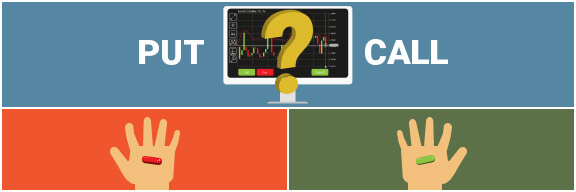One of the most common ways to trade binary options is through binary options brokers. However, there are risks associated with this, as there are lots of fraudulent brokers out there running options scams.
This article will go over some of the binary options basics, before diving into different questions you should ask yourself before you make a deal through a broker to avoid getting scammed.
What Is a Binary Option?
A binary option is a type of financial option in which you buy based on speculation about its future cost at a certain date and time.
If the option reaches or surpasses that cost, you get paid a fixed amount. If it does not, you don’t get paid anything. Because of this, binary options are considered a high-risk investment.
Binary options brokers make trading in this volatile market more accessible and viable for new investors, but there are also fraudsters out there posing as brokers in order to steal from eager, naive investors.
That’s why it’s important to know what red flags to watch out for to protect yourself from the different brokerage firm scams out there and ensure you only work with legitimate brokers and trading platforms.
Are Binary Options Scams That Common?
Unfortunately, yes, binary options scams are very widespread. Scam brokers operate outside the law and steal money from investors in a variety of ways, from manipulating trading software to flat out identity theft.
To protect yourself from getting scammed on binary options trading, ask yourself the questions below when you’re shopping around for binary options brokers.
7 Things To Consider Before Trading Binary Options
1. Do You Know the Basics of Binary Options, Have You Done Your Research?
Before making any type of investment, you should always do plenty of research to know what you’re getting yourself into. Scams aside, binary options can be difficult for new investors, and you can lose a lot of money if you don’t know what you’re doing.
2. Are You Getting Convinced By an Ad Online or on Social Media, or from a Reputable Site?
Scam brokers often reel their targets in by baiting them with online or social media ads. These might appear on sketchy investment advice sites of questionable origins, or they might appear as sponsored posts on your Instagram or Facebook.
Be very wary of any ads you see for binary options brokers that claim they can make you high returns from binary options trading.
3. Did You Check if the Binary Options Broker Is Authorized, or if It Is on a Warning List?
Whenever you’re considering a specific broker, inspect their site thoroughly to see whether or not they claim to be authorized, or registered and regulated, in the country where they are operating. Legitimate brokers should display their registration status in a prominent location, and you should be able to independently verify this.
If you research a broker who claims to be authorized, and instead their name pops up on a warning list of any kind, run the other way.
4. Is the Firm Trying To Get You To Invest Via a Link in an Email or on a Website?
Some scam brokers operate phishing-style scams, designed to steal sensitive information about you including your credit card and/or bank account details. They can then turn around and sell this information, use it to steal directly from you, or use it to commit identity theft.
Never enter sensitive information or attempt to buy binary options through an email or website link. Only use reputable broker platforms and software to trade binary options.
5. Does Their Offer Sound Too Good To Be True?
This piece of advice goes for any type of scam: if an offer sounds too good to be true, it probably is. Binary options trading is not a magic secret to getting rich quick, and no broker can honestly claim that they are going to make you huge returns off a trade or two.
In fact, anyone trading in binary options should expect to lose money on some trades, and no legitimate broker can deny or change that.
6. Did You Check if The Firm Is a Clone Firm?
Fake binary options brokers often clone the website of legitimate brokerage firms, so always check closely to see if this is the case for a broker you’re looking at.
If you Google the name of a firm and multiple sites pop up, ensure you’re clicking on the authentic URL. And, if you have any doubts about what site is real and what is a clone, just avoid that brokerage firm altogether.
7. Do They Have a Fake Name or Social Media Profile?
You should be able to Google the name of a legitimate broker and pull up information about them, including registration status, reviews, and more.
If you can’t find any information on a broker, they might be using a fake name. Or, if you see that their social media profiles have little to no activity and appear new, that can be another red flag that they’re pretending to be someone they’re not.
How a Chargeback Can Help You Recover from a Binary Options Trading Scam
A chargeback is the first thing you can try to get your money back if you’ve been scammed on binary options (or any type of investment).
As long as you made payments to scammers using a credit card or another payment card, you can dispute the charges with your bank or card issuer.

In order to do so, you must clearly explain how you got scammed in writing, and attach any and all evidence you have of the scam for your financial institution to review.
If the institution’s loss prevention team reaches a positive verdict on your case, they put the money back on your card.
For the best odds of retrieving all your funds, consider hiring a chargeback company to do the process for you.
Chargeback fund recovery specialists have a track record of success and know exactly how to navigate the complex fund recovery systems offered by different financial institutions.






